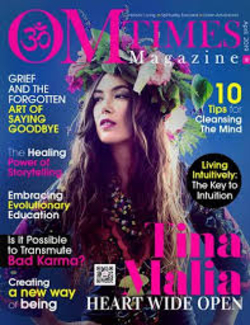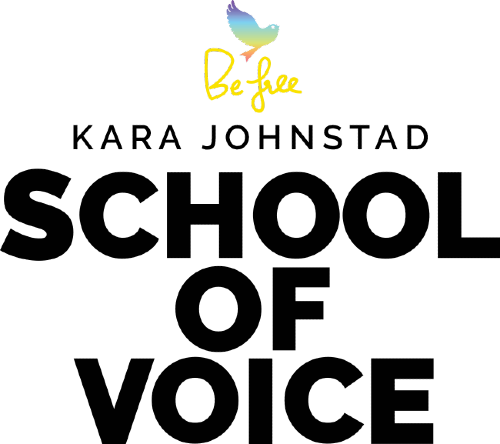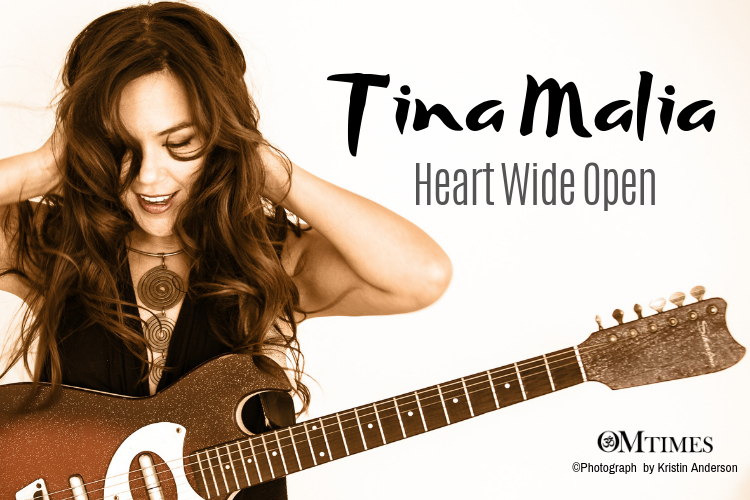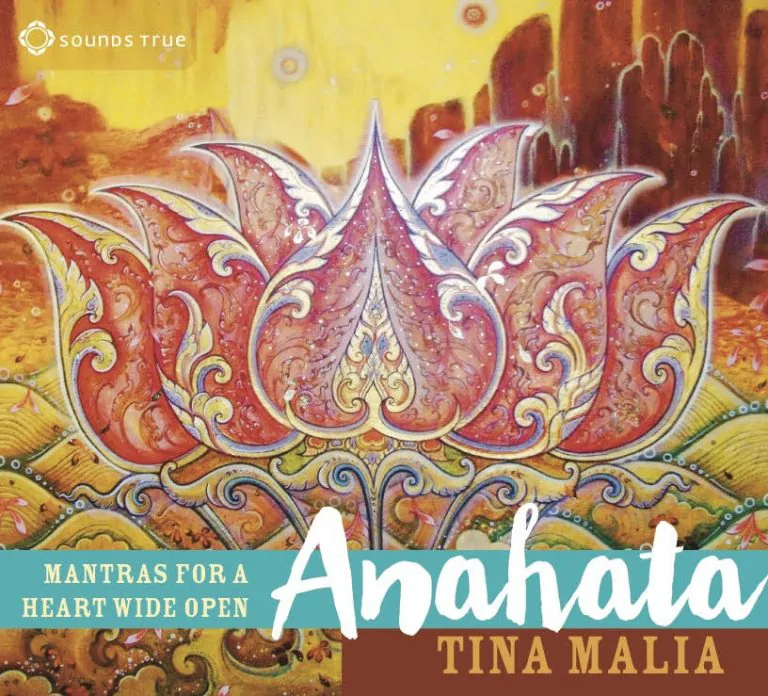- Home INTERVIEWS An Interview with Tina Malia: Heart Wide Open
An Interview with Tina Malia: Heart Wide Open
Tina Malia is a visionary musical artist. Her sonic creations span sacred chant, world, dream pop, and folk music genres. A prolific singer, songwriter, instrumentalist, and sound engineer, Malia expresses her radiant inner landscape through song.
Tina’s mother, a renowned concert pianist and opera singer from South Korea, was the driving force in Tina’s classical musical education. It was her father, however, who bought her a guitar when she turned 15 and encouraged her to follow her musical passions.
Tina Malia all-encompassing musical and spiritual perspective has led her to the studio and live performance with a vast array of iconic artists including Kenny Loggins, India. Arie, Bonnie Raitt, Bassnectar, Deva Premal and Miten, Omar Faruk Tekbilek, Peter Yarrow (of Peter, Paul & Mary) Peter Kater and Joanne Shenandoah.webp
An Interview with Tina Malia: Heart Wide Open
Interview by Kara Johnstad
To listen to the full interview of Tina Malia by Kara Johnstad from Voice Rising on OMTimes Radio, click the player below.
I am delighted to have with me in the studio the prolific singer-songwriter Tina Malia. A visionary musical artist, Tina expresses her radiant inner landscape through song, and her sonic creations span sacred chant, world, dream pop, and folk music genres. Tina is a beloved pioneer in a growing community of people around the world dedicated to residing in harmony with the Earth and expressing it through art, health, education, and music. So welcome, Tina Malia, and thank you so much for taking time to deepen the conversation on voice and vibrational healing.
© Photography by Sequoia Emmanuelle
Kara Johnstad: Would you like to share with us something from your childhood, a memory, which role did music play while you were a kid growing up? Was it a natural thing to be in the field of music?
Tina Malia: Music was my whole world as a child. My mother was a concert pianist, so I lived and breathed music from the time I was in the womb, considerably. My mom would practice the piano seven hours a day. I love telling this story because it’s my first memory on planet earth; I liked to be in my car seat which of course would make me a perfect candidate for traveling musicians my whole life. She would put me in my car seat underneath the grand piano, that is how I got babysat, and she would practice for hours and hours.I would hear all these songs, and I still remember them in detail, note by note, these concertos that she would practice. So, Music has always been my life, and then my mom started teaching me when I was pretty much old enough to talk and old enough to request it, and it was my first language. I learned how to read music; I was learning how to read and write and everything else.
Kara Johnstad: But when you’re performing you perform a lot on the guitar; so, you’re fluent then also in piano, and I’m sure you play.
Tina Malia: Piano was the first instrument, I learned classically which, if there are any classical musicians out there, it’s quite a jump. Not for everyone, but it mentally is a jump to go from classical music on an instrument to writing free flow on that same instrument. I can hear the voice of my mother standing over me. However, guitar, I just always found it a lot easier to just let this other exploratory part of me come out. So, it’s easier to carry a guitar than a piano around.
Kara Johnstad: No, I love that because my mother was also a classical pianist prodigy, and so it was my grandmother. That’s very beautiful, this feeling of finding a fresh, maybe a fresh instrument to express that very deep, beautiful poetry that you have within. What was the turning point in your life when you realized that you want to dedicate your life into being a musician and being a songwriter?
Tina Malia: Well I kind of always knew I would make music, I remember being 11 and declaring to myself that I wanted to be a singer, and I just was clear about that. I always must include my mother in this conversation because she was just part and parcel of all my musical training and everything that led up to that. She wanted me to be a classical pianist, so I was very much being trained to do that, but I loved to sing. My mother, who’s passed now, she was from South Korea.
So, all the stories you hear are true about Korean parents and how they are with their kids and how they make you practice hours and hours and hours per day, and it’s very serious. So that was that side, and I would like to add I was very grateful for that discipline and to have that level of training. My father who is American was much more laid back, much more kind of a hippie attitude so he was the one I went to for a guitar and he helped me, encouraged me to sing and be a singer, the school play and all my choral parts and everything like that. So, I started to develop this love for singing and there’s just something about it, to have your instrument inside of you, there’s no other feeling like that on Earth. It’s the euphoric thing besides mantra meditation that I can do.
Visionary singer and musician Tina Malia brings us an album of traditional Sanskrit language mantras to open and heal our hearts. These sacred chants blend time-honored tradition, vibrant world instrumentation, and soaring vocals for a profoundly healing experience. Especially recommended for those in need of spiritual and energetic support amidst loss, heartbreak, and emotional growth. Cover Art Designed by Rachael Murray and Jennifer Miles.
Kara Johnstad: You’re going into your seventh album, so I know the other six albums, and one of my very favorites is your Silent Awakening album. I found it very enchanting and poetic, and this is my curiosity as another, as a fellow singer-songwriter, that album was full of much poetry and much original material that was coming directly from the heart. In the last couple of albums you’ve made space to honor the Sanskrit or the mantras, I guess your other albums also had chants in other languages, I was just wondering as such a talented poet what your reasoning was behind that, or if you find yourself being drawn back to expressing your truth in your own words? I guess I so much enjoyed that album and I love all, but I also loved what you wrote directly from your heart. Are you planning to do that on your seventh album?
Tina Malia: I am; this next album will be another album in English. I know I live kind of in these dual worlds so to speak, I mean music, the creation of music, the language of music, the music itself is what moves me and so the words and the language, in a way, they all touch me similarly, you know. The Sanskrit and not only the Sanskrit, the Gurmukhi, Hebrew, Spanish, all these different languages they all have their different flavors, and they touch me very deeply in different ways.
I have found the mantra chanting to be an incredibly effective tool, and I know many people are very deeply in that world and use music in that way. So, I love to offer that space, and then I also know I have this whole other litany of fans that don’t connect at all with the mantra. I have people that just straight out say that to me, “When are you going to stop with this mantra thing?” You know like, well, never. I also have a deep love for poetry. I remember Sarah McLachlan saying that once in an interview, and it shocked me, she said writing lyrics for her was like trying to scoop water out of a stone.
I couldn’t believe that she said that because I always considered her poetry to be so prolific and you just assumed that it was very easy for her, but similarly, for me, that is a process that is– those songs.
Kara Johnstad: We continue to meditate, we continue to chant, we continue to sing, we continue to work for the planet, and yet sometimes it’s just dedication. On Your later albums, you are singing beautiful mantras and beautiful chants, and they’re there to heal us and guide us back to wholeness, have you found personal healing through your life and of recording mantras, living mantras, singing mantras? Your chanting practice is also a personal healing journey.
Tina Malia: Absolutely, I started chanting the mantra with a man whom you may know, and you probably do, his name is Jai Uttal, and he was one of the first Westerners that went to India along with the Krishna Das and Ram Dass, and he met a man named Neem Karoli Baba. Jai Uttal is a huge influence on bringing this practice over to us Westerners. I sang in his band when I was 18. To make a very long story short, I was singing in his band, learning these mantras and they were very beautiful, but I was going through a very deep personal crisis, truly going through the night of my soul, and felt very lost here on Earth, so depressed. Depressed really isn’t even the word for it, I like to say my cells felt like they were on fire, like every cell felt like it was burning and in so much suffering, and to the point where I was starting to plan how to end my life, because I just couldn’t take it anymore, I was 24, by the way.
Finally, Jai, my friend, came to me and you know he saw me in this state of despair for quite a while, and he asked me, he said, “Hey Tina, have you ever tried doing Japa mantra?” I said, “No, I don’t know what that is,” and he said, “It’s really easy,” and he had a mala, I’m sure all of you have seen, you know these necklaces, these malas, and they’re a tool. They’re beautiful. They’re tools; he said: “It’s really easy, you put it in between your hands and every time you pass a bead you chant this mantra.” I chant the mantra ram, that was what was given to me by my teacher,” and it’s just love, it just means god and love, and you’re just calling out to the divine, and he said, “You should maybe try it, it might help you.”
I started this practice with nothing else to lose and nothing else to do because all of my books, everything I had done in the past, even singing, music, nothing was working for me anymore and I was just in this constant state of despair. I started doing this mantra repetition and after, you know, many hours that day and then the next day and then weeks and then months, and it was through this practice that I was completely healed, completely lifted out of this deep state of despair.
So, I say that mantra saved my life and it’s true, it is something that saved my life. It didn’t just pull me out of this despair; it filled me with the feeling that I was so desperately looking for all over planet Earth. All of the spiritual teachings that all of us read, from every teacher, from all over the world, what do they always say? It’s found within, well what if you don’t know how to find it within? What if you don’t know what that tool is? That’s what mantra is; it’s a tool. It’s like giving you a shovel so that you can go internally, and you can dig beautiful sacred tool.

Kara Johnstad: So Tina your story deeply touched me that I had to think of the word sound mind, sound body, making a sound decision, how sound literally can start to get every single cell in our heart and our mind, vibrating in harmony. I thought it was very precious how you spoke about being in a night of the soul and having not only singing, but the practice of Japa mantra helped to heal you, make you whole.
Anahata is the title of your newest album, and it’s also the fourth chakra of the seven main chakras. Located directly in the heart, a Sanskrit word, I found it interesting that Anahata also means unstruck, unbeaten, unhurt. Why did you choose to name the album Anahata? What does it mean to you?
Tina Malia: I think you just said it even better than I would’ve said it.
It’s exactly that; it’s that sense of purity of the heart, just that. The sense of purity, and like you said, unstruck before it’s touched and tarnished, how we are in our true nature.
Kara Johnstad: I like from the Anahata album, music called Moola Mantra, would you like to share a few words before we go into that title?
Tina Malia: This is really, this is a beautiful mantra. It’s a real calming and bringing a sense of peace, and as all of these mantras, the point of all of them as you will start to study a bit about them, all of them is different angles, allows you to come to the end of suffering.
Kara Johnstad: Tina is here with us in studio today, so Tina, you’re speaking a lot, or you’re sharing with us very much exactly what I wanted to ask you actually, you know the world can be harsh at times, we have some challenges that we need to face as part of just being on the Earth, being human and it’s very natural for us to close down in order to survive. I was just curious, do you have a daily ritual, a daily ritual of course of mantra, that helps you stay with an open heart and that beautiful presence that you have.
Tina Malia: You know, as I mentioned at the beginning of this, of this interview, so Jai Uttal is the person who gave me this mantra and my daily practice and his teacher was Neem Karoli Baba, so this was Neem Karoli Baba’s, pretty much his only teaching. You know, he would say chant ram. He didn’t have books, he didn’t have discourses, and he would say that all of your questions will be answered there.
Like I said, having had this practice now for many years, I can say that that is very true for me as well that it stops all the questions and it stops all of the searchings for everything else because they say that mantra is another form of silence.
Kara Johnstad: Tina Malia, it’s just a beautiful journey to be here with you today, and I’d like to have you know this, Francis from Assisi is attributed to saying that to sing is to pray twice, do you feel that singing is a form of prayer?
Tina Malia: Absolutely, no I’m completely on board with that. You know, and it’s a choice too, of course, you can sing anything you want to, and if you– what I have found, and that’s why I’ve dedicated my life this direction is when you choose to use your voice to sing prayers in whatever. The language you choose, to or even if it’s humming if it has that prayerful quality to it. What do we mean by prayerful? Well everything from, a sense of gratitude, a sense of healing, and hope, all of these feelings that when there’s that intention behind it, sometimes the sound itself creates that, you don’t even have to do it with your mind. The sound itself can be so beautiful that it stops the mind and brings those feelings and qualities to you.
There’s that intention, and again, that’s why I love chanting the mantra, and I love doing sacred music and conscious music, it– like you were talking about earlier, it does create this vibrational field, and we are made of water. It does tune the water in our bodies to those frequencies. I’ll share with you all my secrets, Kara. Anything you want to know.
Kara Johnstad: Yes, yes, yes.
Tina Malia: I don’t have a lot, honestly. My first and foremost I’ve already shared, so my second secret, I think the most important thing is diet. I find that my body, my vessel, is very, sensitive to everything I put into it and it took me a long time to figure that out.
We are not taught that in the West, how what we eat not only affects our physical health but affects our mental health almost first and foremost, so I’m very careful with that. I’m very aware of what I put into my body; I’m vegetarian, I have also found for my reasons that any very heavy foods really create a heavy mindset for me as well. They create heaviness in a body, everything; caffeine, I’m very conscious of what I do so that I keep, I like to stay in a state of wellbeing like you were saying before. So that’s a very important one for me, is health. I love cooking; I love food. I love medicinal foods, so that’s my secret life. A lot of people kind of joke with me that they know me as a cook, because like the world thinks you’re a singer, but you’re a cook.
I’m very, very into art, so anything that has to do with art, and I love the Earth, so I do woodworking, I have all these kind of separate art projects, and they are really what keeps me healthy.
Kara Johnstad: So, what is your Sadhana or your practice look like when you’re on tour when you get so busy, what do you make sure that you get done so that you can stay in balance with all your things going on?
Tina Malia: After so many years of doing Japa meditation, I was saying earlier in that story, for the first few weeks, it didn’t have much effect on me. Then after months, and after years, now it’s something that if I get a little frazzled and I feel myself get frazzled, all I have to do is put myself in time out. I close my eyes and touch into that well, or into the well-trodden path of that practice, and within moments I’m right there again. Kind of goes back to what I’m doing, but that is what keeps me together in every part of my life.
Kara Johnstad: Yeah, I think, and many people don’t realize that music really it anchors itself everywhere in our body and our memory so the more you practice, it can be that it takes only 30 seconds or 10 minutes just to tap in, you don’t need that long, long practice, right? Tina, what’s a good internet address that your listeners can go to find more about your concerts and retreats and buy some music and connect with you?
Tina Malia: Just tinamalia.com, T-I-N-A, M-A-L-I-A, .com.
Kara Johnstad: Tina, now think about this: how can we use the power of voice to heal humanity?
Tina Malia: I started giving workshops. I never meant to give workshops. I always only meant to be a singer and a performer but through these last few years, people have asked me to start giving workshops on all these things that I talk about because I love them so much. So, one of the things I start people with is, just to put a timer on for 10 minutes. Ten-minute practice per day and everyone has 10 minutes. If anyone who says he is too busy, put a timer on your phone and pick something easy, pick something you resonate with and whether you’re using your voice internally– because the practice I do is actually silent, but I still hear the word internally so I think it’s still effective as a sound vibration. So, do it internally, or you can do it externally or, making music whether it’s chanting or some practice like that that intentionally focuses the mind for that timeframe. I find that all solutions to our problems can come within those few moments, because, actually within those moments we realize that many things that we think are problems are not problems. The mind is not always our friend; it likes to tell us all kinds of things that are not true.
So, giving yourself that time and that practice, it changes you, it does. It changes how we see things, and it changes how you see yourself. It changes how you see the world. It brings a sense of peace and calms to all situations.
Kara Johnstad: Thank you, Tina, so much for being with me today here at Voice Rising, the wonderful, prolific, openhearted, singer-songwriter Tina Malia.
Tina Malia: Thank you so much, Kara. Thank you, everyone.
Connect with Tina Malia
Connect with Tina Malia on her website tinamalia.com
Connect with Tina Malia on Facebook
The article was originally published on the OMTIMES website
Begin Now! Transform Your Life Through Music
Get articles, concert news, and exclusive invitations delivered right to your inbox.
About us
We specialize in voice training and vocal coaching and love teaching how to play an instrument. We are helping students become better musicians by fostering skill, appreciation, and enjoyment of music in players of all ages. By providing thorough and exceptional music education in a comfortable, resourceful environment, teachers can develop meaningful partnerships with students and families to promote a lifelong relationship with music and creativity.
Quick Facts
© 1985 - 2024 - KARA JOHNSTAD · ALL RIGHTS RESERVED
BUILT WITH LOVE BY VOICE YOUR BIZ™ | Login



